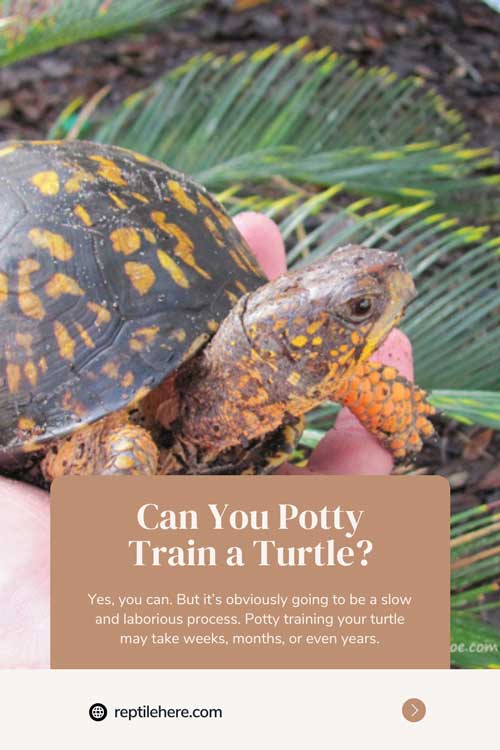Can You Potty Train a Turtle? If Yes, How?
Turtles are slow learners and are never in a hurry for anything. They’ll have the same attitude when you try to potty train them.
Can you potty train a turtle? Yes, you can. But it’s obviously going to be a slow and laborious process. Potty training your turtle may take weeks, months, or even years. And don’t be surprised if you can never potty train him! The success of making your turtle use a litter tray or a specific potty spot relies on your training techniques, the turtle’s personality, and your patience.
Since turtles can store experiences in their memory, persistent behavior can make them learn something (check out this research here). Rewards and motivation can also help to make them follow your instructions. But they rarely work when it comes to potty training. Continue reading the article to know whether it’s worth trying your turtle to potty train and, if yes, how?
Can You Potty Train Your Turtle?
Contents
Although it’s a slow and frustrating process for the turtle keepers, it’s possible to potty train them. So you need to consider whether it is worth it and whether you have the patience to go through this laborious process. But you could be optimistic because turtles are creatures of habit who like to do the same thing at the same time every day.
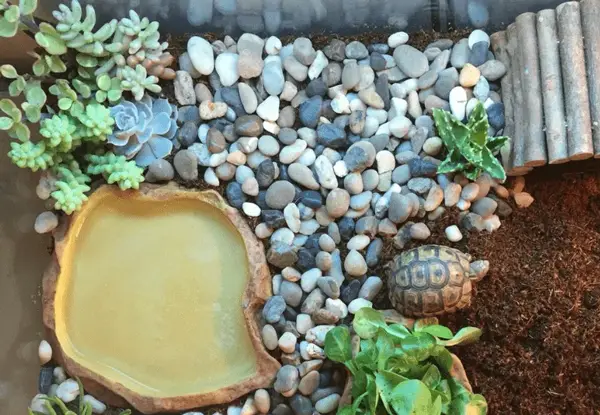
So if you’re smart enough to identify his pattern of making a habit, you’ll probably be able to teach him how to poop on a litter tray consistently. Adult turtles with a shell length of more than 4 inches typically defecate every 3 to 4 days. While the turtles smaller than that or baby turtles will poop at least once a day.
They mostly do it in their tank water, which probably relaxes their bowels, helping them poop easily. So to change this behavior and litter train them, you’ve to encourage them to use the toilet in a defined enclosure when they’re out to dry.
Is It Worth Trying to Potty Train You Turtle?
Trying to potty train your turtle is unnatural behavior for them. And that’s why it’s a time-consuming process. So even though you may prepare your turtle to poop on a litter box, the question arises — is it worth it?
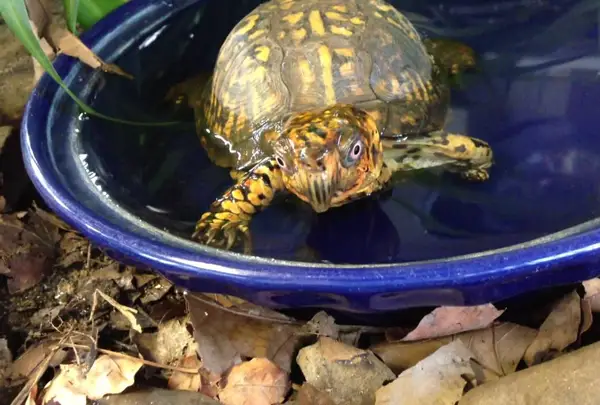
A majority of turtle owners don’t find the need for potty training a turtle. They have some good reasons for that, such as
- Turtles have a natural behavior of pooping in the water (of the tank or terrarium), so you can say they’re naturally potty trained.
- They infrequently poop (every 2 to 3 days for an adult).
- Spot cleaning or picking up the feces from the tank using a poop scoop or net isn’t troubling.
- Since tanks go through periodical cleaning, the risks associated with germs in the potty are minimized.
Turtles have a predictable pattern of excreting. And cleaning their poop isn’t tough, either. So many owners think there’s no point in trying to potty train the turtle unless they’re excreting in a scattered manner and causing trouble with cleaning.
How to Potty Train Your Turtle?
You could be highly enthusiastic and take it as a challenge to potty train your turtle. If you’re patient enough and give enough time to care for your pet turtle, here’s a general guide to potty train your turtle.
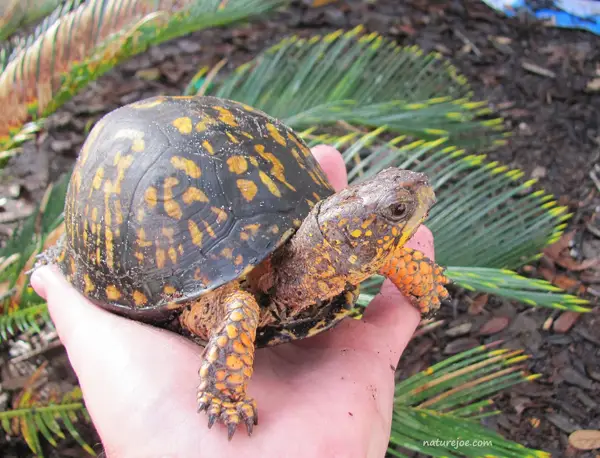
It may not work for all, depending on the turtle’s personality. But you can still follow these guidelines to make your turtle poop in a trained and consistent way.
Understand Your Turtle’s Potty Routine
The best thing about the turtles is they’re habitual, meaning doing the same thing at the same time every day. So take your time to observe and try to decode the turtle’s toilet habits. Find answers to the following questions
- How often does he poop every week?
- At which time of the day does he usually excrete?
- Does he do it after eating?
- Does he do it while bathing?
Prepare Turtle-safe Substate for Potty Training
Turtles shouldn’t be using cat litter because there’s a risk of ingestion which could impact their GI Tract. The impaction could inhibit the passage of feces from their body.
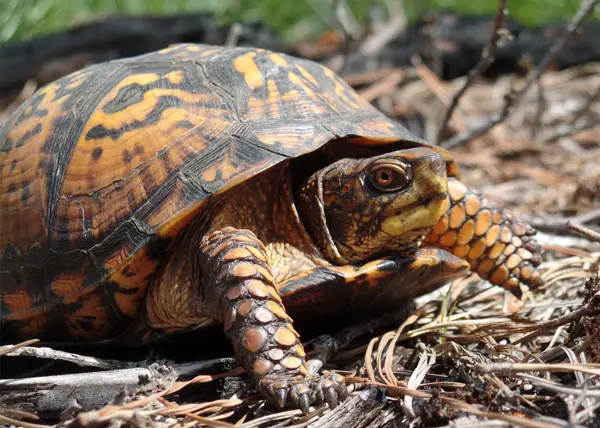
Some turtle-safe substrates could be used to eliminate waste while you get them out in the dry. These substrates include:
- Compost
- Straw
- Topsoil
- Sphagnum Moss
- Hemp
- Mulch
They’re much safer for turtles with reduced risk of impaction in case of accidental ingestion.
Also read: How Can You Tell If a Turtle is Pregnant?
Prepare a Dish with Water
If your turtle poops only in the water, you can use a separate dish with a fair amount of water. This dish should be treated as a litter tray for your turtle.
This trick will work great if he leaves poop as soon as he touches the water while getting wet after dry docking. After he poops, you can transfer him to his tank or terrarium so he doesn’t stew in his excrement.
Execute a Schedule & Encourage a New Potty Spot
You can’t potty train your turtle without a proper routine and schedule. After monitoring him for a week or two, you can figure out when he usually poops. He may be excreting after an hour of taking the meal.
Observe him and understand his schedule before you encourage him for his new potty spot. If he excretes after breakfast or a meal, change where you serve his food during his dry docking. If he eats around the new potty spot, he’ll most likely feel the urge and eliminate it in that place.
If he does it in the water, create a dummy dish with some water, and put this there when he’s supposed to excrete. Once he eliminates, take him back to his original dwelling.
How to Deal With the Pet Turtle’s Potty if It’s not Trained?
Don’t worry if you fail to potty train your turtle. Cleaning turtles’ dropping or uneaten food requires a periodic cleaning task. You’ll have to maintain this cleaning routing even if you potty train your turtle.
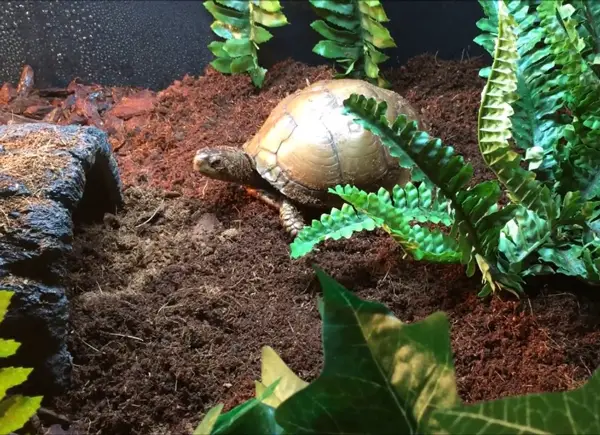
- You should use a small net or a poop scoop to clean leftover food or droppings daily.
- Replace some of the water in your turtle’s tank with fresh water at least once a week.
- Every 2 to 3 weeks, you should clean the tank, refresh the filter, and replace the whole tank water.
FAQs
Let’s look at some common FAQs answered here.
Since turtles can excrete bacteria such as Salmonella, handling their poop with bare hands could be risky (see more of the risk factors associated with Salmonella here). So always wash your hands with a disinfectant after handling turtles.
Yes, turtles are coprophagic and can eat their own poop or the poop of the other tank mates. But there’s nothing to be concerned about; it’s often beneficial for them as they can ingest nutrients and healthy bacteria left over in their feces and not absorbed the first time.
Related: Do Turtles Need A Filter?
Final Words
Turtles are slow learners, and potty training is unnatural for them. So don’t expect to teach your turtle how to use a litter box overnight. It’ll test your patience, and most pet turtle owners opt out of it for not being patient enough, and they also think it’s not worth it. However, there are a few success stories where some owners have managed to provide litter box training to their pet turtles.
They’ve given enough time to observe the toilet habits of the turtle, managed a suitable potty spot, and encouraged a potty schedule. If you see your turtle is responding to your commands, you can be hopeful that he’ll learn at some point. But if he’s not interested in the new potty habits or not responding to the commands, your efforts might go in vain!
